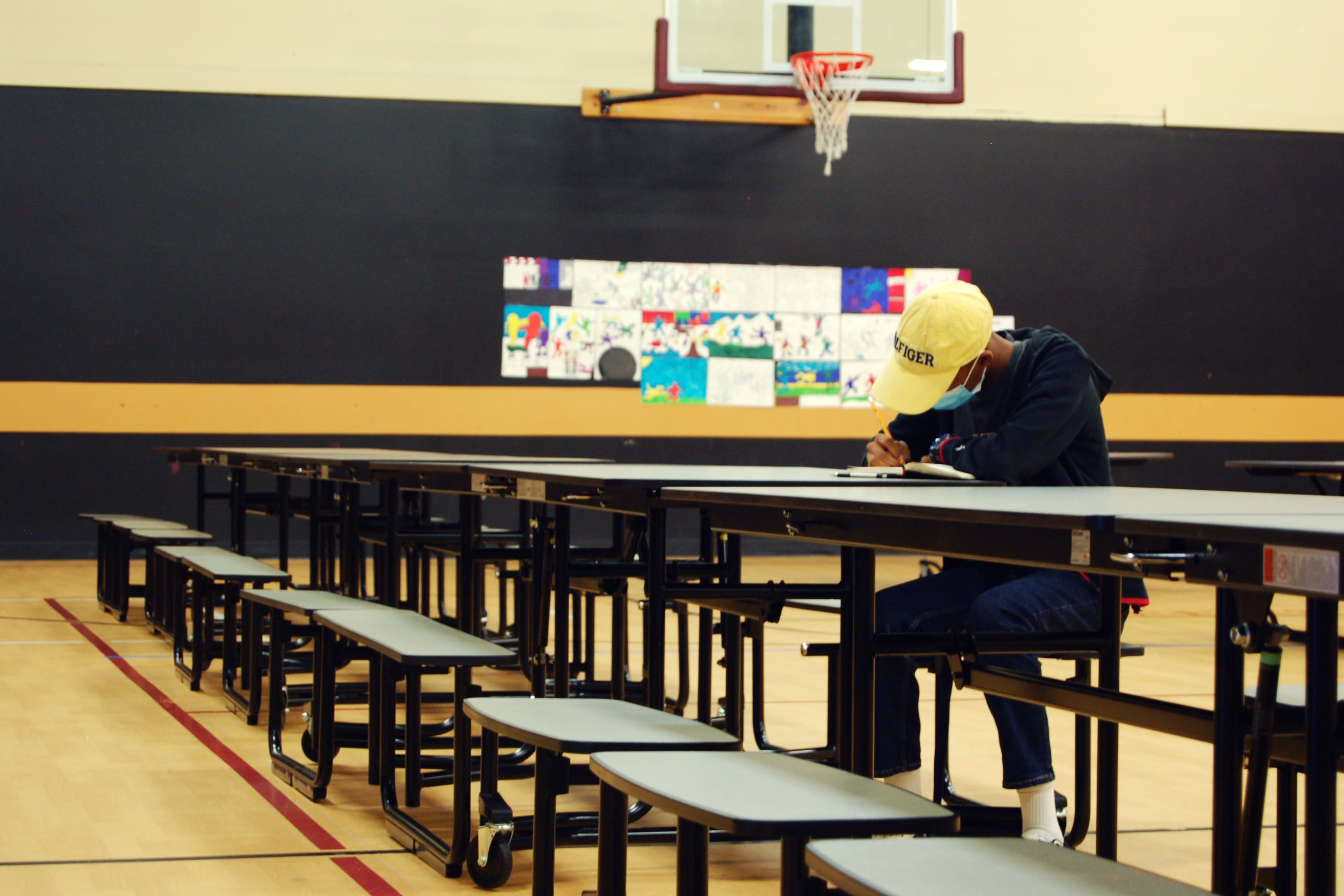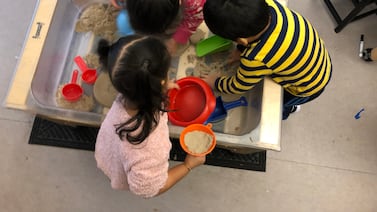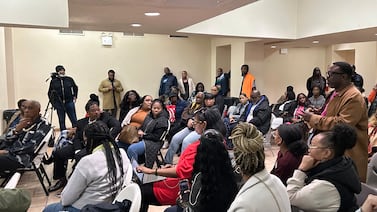Sign up for Chalkbeat Indiana’s free daily newsletter to keep up with Indianapolis Public Schools, Marion County’s township districts, and statewide education news.
Thousands of Indiana students. Hundreds of thousands of hours in reading and math tutoring. And millions of dollars in funding.
Those add up to tutoring and intervention programs that have helped Indiana students recover from COVID-related learning loss. Now the programs — funded by federal COVID relief money — could end if Indiana lawmakers don’t make room for them in the state budget.
With the expiration of the federal funds this year, the state has to decide if its programs are worth saving as non-state funded tutoring programs also struggle for funds.
It’s not yet clear how high of a priority the programs will be in a budget session where lawmakers are expected to debate pay raises for teachers, expansions of voucher programs, and funding for K-12 schools, along with non-education priorities.
The Indiana Department of Education has indicated it would evaluate the academic impact of tutoring programs such as summer labs and learning grants as it seeks state, philanthropic, and existing funds to sustain and expand the programs.
“We’re only going to ask the General Assembly to sustain what’s working,” said Secretary of Education Katie Jenner at Wednesday’s State Board of Education meeting.
Tutoring programs combat learning loss
Several programs aimed at helping students make up for learning loss are now shrinking or facing an uncertain future, including:
- Circle City Readers served 500 students in Indianapolis, with reading tutors at 10 schools providing tutoring three to four times per week to a small group of students during intervention time. The program was paid for by federal COVID aid through the Indianapolis Office of Education Innovation; the city needs another source of funding to continue the program beyond this year.
- Indianapolis Public Schools offered several tutoring programs funded by its federal ESSER dollars, including free, virtual after-school tutoring to all students who wanted it, as well as virtual tutoring during the school day at 24 school sites. The programs scaled back at the beginning of this school year.
- Indiana Learns offers grants of up to $1,000 to students from low-income backgrounds who are not proficient in reading and math, allowing them to schedule and pay for tutoring through vetted organizations. Operated by The Mind Trust, the ESSER-funded program has seen 23,000 students participate. Families have until Dec. 20 to enroll in the program and schedule tutoring sessions through March 2025, the next state testing window.
- Another ESSER-funded program started to combat learning loss after the pandemic, the Indy Summer Learning Labs, takes place at school and community sites during the summer. Its focus on summer acceleration in larger classroom settings differentiates it from tutoring programs, but will also require sustained funding from the state to continue operating and expanding.
While the funding for each varies, the latter two are state programs that could be funded in the upcoming budget.
Each of the programs has been linked to academic gains for the students who participated. Students participating in the Indy Summer Learning Labs, along with the program’s new sites outside Marion County, have seen double-digit growth in reading and math on assessments given as part of the labs.
Such a report is not yet available for Indiana Learns, according to the Mind Trust, which operates both the summer labs and the tutoring grant program.
In a presentation to the State Board of Education Wednesday, Mind Trust CEO Brandon Brown noted that preliminary data for the grants shows the greatest gains in math and for students who attend regularly, as well as Hispanic and English learner students.
“The students I spoke to, when it comes to tutoring, were as excited as they could be about getting that extra support,” Jenner said during the presentation.
In-school tutoring is most effective, researchers say
When considering which programs to fund, Indiana should consider what research says about high-impact tutoring programs, said Nancy Waymack, director of research partnerships and policy for Stanford University’s National Student Support Accelerator, which provides resources for districts implementing tutoring programs.
High-impact tutoring is delivered one-on-one or in small groups by consistent and well-trained tutors. It happens during the school day up to five days a week, integrated with classroom instruction.
Indiana Learns requires parents to apply for the grant and then schedule and bring their children to lessons. The grant expanded in 2023 to allow tutoring during certain blocks of the school day, such as lunchtime, but it’s not clear how widespread that option is.
Putting the onus on parents is not ideal, researchers said.
“There are the pressures of everyday life and if something is at the top of the list and not this, it may get bumped down,” Waymack said. “We found it to be more effective when it’s part of the educational program, so students who need it have it.”
After-school, summer, and other out-of-school programs don’t work as well as tutoring during the school day because students may not show up consistently, said Amanda Neitzel, director of research at ProvenTutoring from the Center for Research and Reform in Education at Johns Hopkins University.
Programs that require families to opt in also risk furthering inequity, because the families who sign up likely would have found tutoring anyway. And with a variety of providers, it’s not clear how much tutoring a $1,000 grant can buy, she said.
Going forward, Neitzel said states and school districts should strive to make tutoring part of the school day, integrated with a strong in-class curriculum.
Research is mixed on whether tutoring leads to sustained gains after the intervention has ended, but Netizel said there are other concerns with ending the programs after ESSER funding runs out.
“A lot of kids have not caught back up, and we have not addressed the other factors that led to kids not being proficient even before the pandemic,” Neitzel said. “You can’t tutor your way out of that.”
After ESSER, there are ways to sustain tutoring programs, Waymack said.
Some schools and districts are adding tutoring to their multi-tiered systems of support so intervention time can be used for tutoring, Waymack said. On a larger scale, states like Tennessee have added tutoring dollars to their student funding formula.
Without additional funding, Indiana expects to be able to operate both Indiana Learns and the Summer Learning Labs through next year.
Families can apply for Indiana Learns grants through Dec. 20, but must also schedule tutoring sessions through March by that deadline.
Regional organizations can apply to host a summer learning lab in 2025 by Nov. 22.
Aleksandra Appleton covers Indiana education policy and writes about K-12 schools across the state. Contact her at aappleton@chalkbeat.org.






